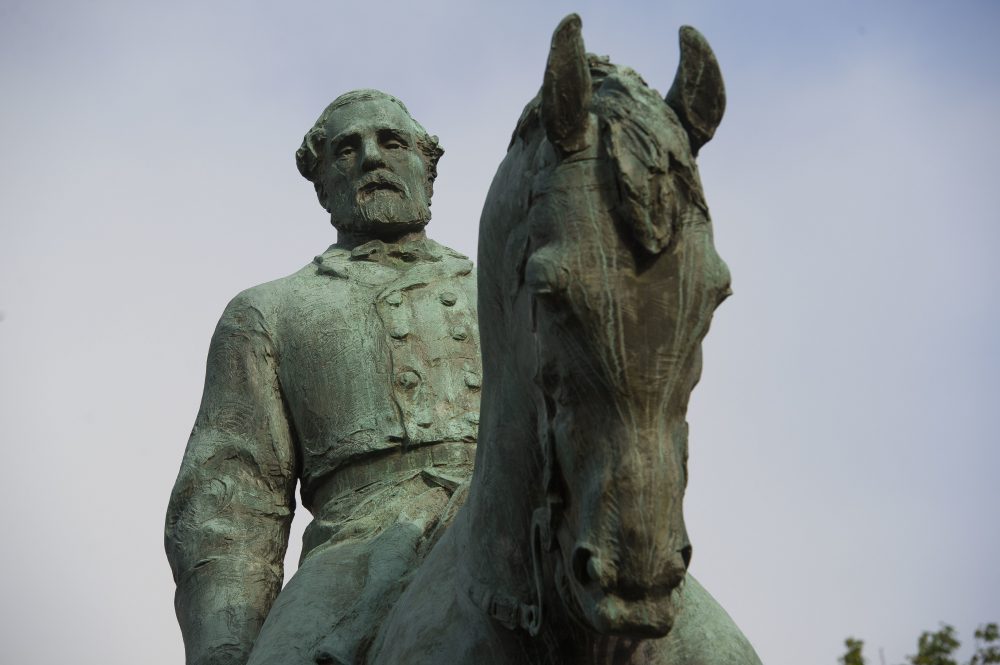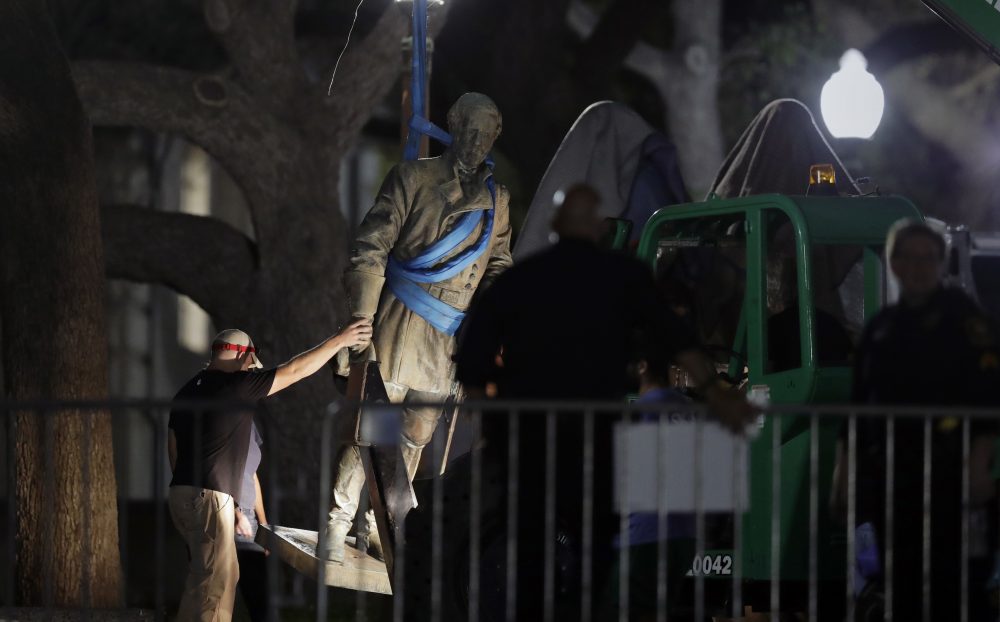Advertisement
Here’s How To Remember The Confederacy

The statue of Robert E. Lee in Charlottesville shows the slavocracy general atop his horse, imposing and noble-looking. Let’s consider an alternative memorial that’s been proposed by a critic who doesn’t swoon over white supremacy:
Lee, horseless, stands or is prostrate on the ground, surrounded by statues of African-American soldiers who helped the North conquer his Army of Northern Virginia. Maybe there’d be a plaque — ”Freedom’s Victory” or some such. (That’s my own idea.) Ask yourself if the defenders of the current statue -- and of flying Confederate flags in public places — would approve of our replacement.
I don’t think so, either. Which is why such a statue is the appropriate memorial to the Confederacy, assuming you want something to replace the statues cities are racing to yank down, and properly so.
Our clueless commander-in-chief tweeted his view of this bit of urban renewal: “Sad to see the history and culture of our great country being ripped apart with the removal of our beautiful statues and monuments.” Yet even a liberal acquaintance of mine has mused about whether warehousing these tributes to tyranny is misguided sanitizing of history.
Nonsense. You don’t remember a moral cancer like slavery with memorials exalting the men who fought for it. Memorials should honor the victims of oppression, not the oppressors. Boston’s Holocaust Memorial is a good example. I can imagine what my acquaintance would say if, instead of the current design, that memorial consisted of a statue of a courageous-looking SS officer proudly saluting “Heil Hitler.”
And make no mistake, Confederate statues honored southern oppressors. The Charlottesville Lee was erected in 1924, an era when the South put up many such memorials as Jim Crow and a resurgent Ku Klux Klan took hold. These memorials look, and were meant to look, honorific.
Memorials should honor the victims of oppression, not the oppressors.
And what do they honor? A rebellion against the United States in defense of human enslavement. Apologists’ claim that the monuments honor a culture devoted to states’ rights is transparent trash: The states’ right the Confederacy fought to preserve was slavery, as its vice president acknowledged when he said that the breakaway regime’s “foundations are laid, its cornerstone rests, upon the great truth that the negro is not equal to the white man; that slavery, subordination to the superior race, is his natural and normal condition.”
That racist raison d’etre answers Trump’s question about why, if we remove Confederate statues, we wouldn’t expunge tributes to the slave-owning George Washington and Thomas Jefferson as well. Council on Foreign Relations fellow Max Boot replies that the founders, flawed though they were, created the government against which Robert E. Lee rebelled. Washington, Jefferson and their comrades, “while stained by the original sin of slavery, nevertheless established certain ‘unalienable rights’ that would finally be vindicated after the struggles of the Civil War.”
Advertisement

Let’s be honest: It’s not just southerners who need to reconsider their heroes and race. For a generation, activists have demanded we abandon or reform Columbus Day, to recognize that the great explorer also brutalized Native Americans. Some cities and states responded by simultaneously observing Indigenous Peoples Day.
Cultural conservatives may see this as an attack on America. I see it as a modern recognition of Americans who suffered under colonialism, as well as a sign of America’s strength. We acknowledge, not whitewash, our sins. Modifying the holiday is of a piece with that proposed modification of Lee’s statue.
We’ll be discussing many such reforms. One native southerner noted the web of Confederate-named streets, forts and schools woven throughout the bottom quadrant of the country. There’s a deeper reckoning coming, he argued, than just Confederate statues: “We’re only at the beginning of a long-needed, long-awaited iconoclasm, and I expect this time it will go much further than anyone could have expected, just weeks ago.”
